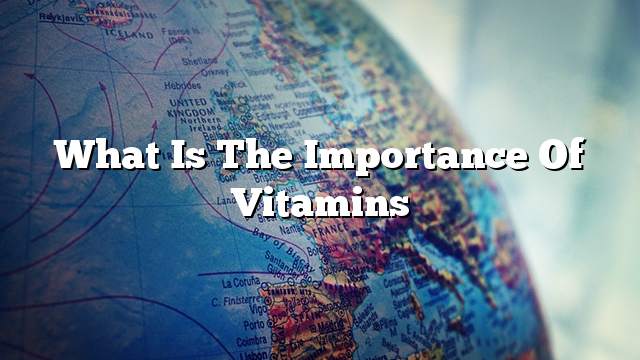The body needs to perform various biological processes, and to function correctly to many nutrients at different rates; it needs proteins, fats, carbohydrates, minerals and vitamins, each of which plays an important role and vital in the body, can not be dispensed with any of them; In any of these deficiency or increase leads to a lot of problems that affect the body and make it unable to do any activities, or cause various diseases.
Importance of vitamins
Vitamins generally help the body to grow and develop. It also plays an important role in the body’s metabolism, immunity and digestion. There are thirteen basic types of vitamins. The best way to get them is to eat the right way in balanced ways. And in some cases it may not be enough to eat just to get our needs for vitamins and resort to nutrients in order to compensate for the shortage of these vitamins.
For example, vitamin A improves the health and well-being of the body, as well as its role in the immune system by supporting and stimulating white blood cells. Vitamin B1 plays an important role in metabolism, especially in cracking carbohydrates and amino acids. It also plays an important role in the production of enzymes Vitamin B2 also plays a role in metabolism and cellular processes, as well as vitamin B3, which plays an important role in metabolism, and vitamin B5, which plays a role in metabolism at the cellular level.
Vitamin B6, which can not be produced in the body, is obtained from different meat. It is considered one of the vitamins that plays many important roles in the body. It is involved in the reactions of many enzymes, in addition to its important role in energy production and metabolism. People have many problems as a result of the lack of which is a common problem these days it has the role in countless processes at the level of the body; it works on the transfer of the methyl group in addition to entering the structure and organization of DNA, and helps in the composition of the cell and maturity and division, Heart health and nervous system, and also contributes significantly as all group vitamins produce energy in the body.
Vitamin D plays an important role in growth and development and strengthens the health of bones and teeth, as well as it affects the work of muscles, the immune system, vitamin C has a large role in the immune system, healing wounds, in addition to absorption of iron from non-meat sources, Such as vegetables and grains. And so what we have offered represents some of the functions of vitamins and their importance to the body, in addition to these benefits there are many other functions of vitamins, and other types of them can not be dispensed in any way.
